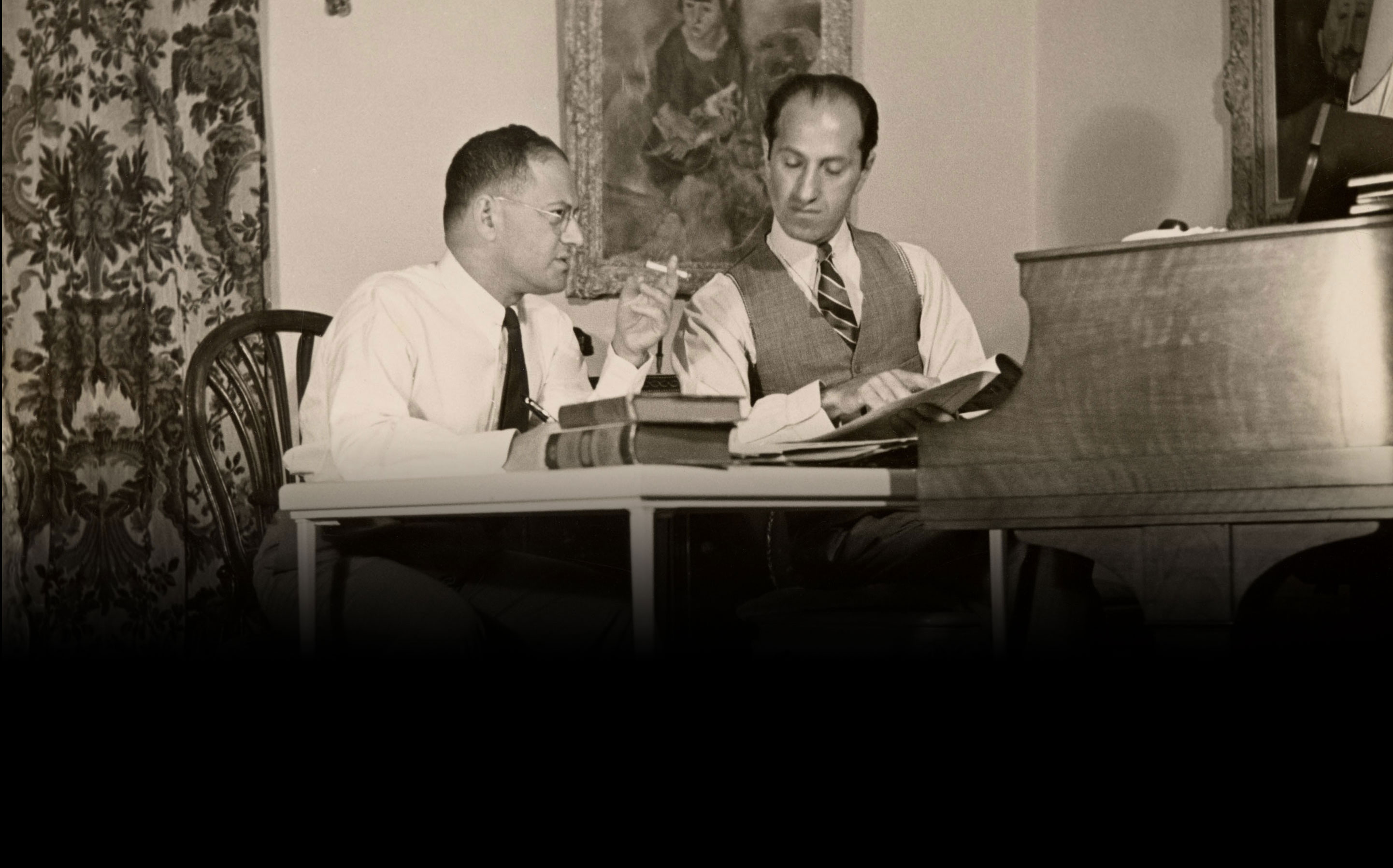A Gershwin Goodbye to Music Legend David Bowie
The late David Bowie, a prolific and inventive singer and songwriter, grew famous for his progressive rock style. But in 1998, he did a lovely and little-known take on the old Gershwin standard, “A Foggy Day.”
 ~Sarah Sisk is an undergraduate English major at U-M’s College of Literature, Science and the Arts. She is working with the Gershwin Initiative as an undergraduate research assistant in the university’s UROP program.
~Sarah Sisk is an undergraduate English major at U-M’s College of Literature, Science and the Arts. She is working with the Gershwin Initiative as an undergraduate research assistant in the university’s UROP program.
The music world has recently felt the loss of English musician and pop icon David Bowie, who died on January 10, 2016. Bowie, whose 1969 single “Space Oddity” helped establish his popularity, achieved international rock star status in the 1970s, performing as his ostentatious, extraterrestrial stage persona “Ziggy Stardust.” He was famous for experimenting with, and at times completely transforming, his own musical style and image. He innovated within the genres of glam rock, pop, and electronic music, but he also drew inspiration from a variety of other musical and conceptual sources. Throughout the years, his music incorporated classic rock and roll, soul, jazz, funk, and classical music, as well as Japanese fashion and stage traditions, German political and musical culture, science fiction themes, and current events. He collaborated with a number of influential musicians throughout his career; his 1975 hit “Fame” was co-written with John Lennon, and he joined voices with Freddie Mercury in Queen’s 1981 single “Under Pressure.” Less famously, but of particular interest to Gershwin enthusiasts, he contributed to the 1998 compilation album Red Hot + Rhapsody: The Gershwin Groove, which was released in celebration of the centennial anniversary of George Gershwin’s birthday
Bowie’s talents did not end with musicianship. He was an art student and painter who amassed a large personal collection of 20th-century art. As an actor, he appeared in a smattering of film, television, and theater productions. Notably, he brought music and glamor to the role of the Goblin King Jareth, the villain in Jim Henson’s 1986 fantasy film Labyrinth. He also portrayed inventor Nikola Tesla in the 2006 film The Prestige. Overall, Bowie’s involvement in music and the creative industries exceeded a fifty year span. His avant garde album Blackstar was released on his birthday on January 8, 2016, a mere two days before his death. Blackstar recently topped the Billboard 200 charts, making it Bowie’s first No. 1 album.
Bowie left behind a legacy of musical virtuosity that left few genres untouched. He was a master of many instruments, including guitar, keyboard, and saxophone. But he is remembered best for his talent as a singer; his vocal range spanned octaves and exhibited an equally impressive range of emotions. His appearance in Red Hot + Rhapsody is an opportunity to admire his musical adaptability and the timeless quality of his talent. On the last track of a collection of Gershwin songs performed by contemporary artists, Bowie, with American composer and film scorer Angelo Badalamenti, performs a moody, achingly smooth cover of “A Foggy Day.”
“A Foggy Day in London Town,” as the song was originally called, was written by George and Ira Gershwin for the 1937 Fred Astaire film A Damsel in Distress. Since then it has become a jazz standard, and through the years has been recorded by Frank Sinatra, Ella Fitzgerald, Louis Armstrong, Billie Holiday, Doris Day, Judy Garland, and Tony Bennett. Bowie, ever versatile, emulates the style of the classic crooners in his own rendition, which is a small but special piece of his vast musical repertoire.
Join the Gershwin Initiative team in wishing David Bowie farewell by listening to his heartfelt take on the Gershwin classic:

